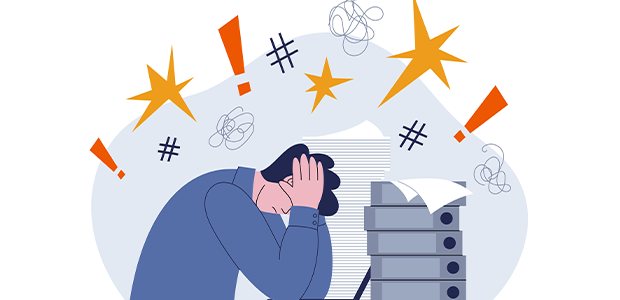
Living the real you: Mental Health in the Workplace
At CogX Festival 2023, Steven Bartlett and Fearne Cotton sat down for a candid fireside conversation to discuss what it takes to build resilience amid today’s turbulent culture, nurturing mental health in the workplace, unlocking your true self, and fostering tools for a healthier and more balanced headspace.
This conversation opened up an interesting dialogue surrounding the discussion of mental health, and specifically stress, in the workplace and as a founder.
Why is there a surge in discussions around mental health in the workplace?
Bartlett commented: “I think the world has changed irreversibly in so many ways over the last 10-20 years. I have spent so much time sitting with psychologists and they’ve been highlighting the changes that have occurred in the world, the loss of community, the decline in purposefulness, which is only going to be accelerated over the next decade or two with artificial intelligence and our need to seek out new ways to conduct our lives and work.”
He continued: “Work is now being expected to lift more of the responsibility of wellness than it was expected to, in the world we used to live in. It's a huge advantage for employers, though, because the thing that keeps staff retained and focused.”
In an ever-connected world, it seems more and more people are becoming lonelier than ever. The statement underscores a significant shift in workplace dynamics, where the responsibility for employee wellness has become a central aspect of organisational strategy. People are now wanting their workplace to aid in their mental health and wellness, especially as so many are now working from home. This has led to companies having to put an emphasis on employee wellbeing, rather than just expecting them to deal with it in their own time. This has been influenced by factors like the global pandemic and the rise of remote and flexible working arrangements.
Founder stress
The concept that stress is contagious has been well-established by researchers. Stress can easily spread within relationships and workplace environments. Evidence from various studies points to the phenomenon of "crossover" stress, where one individual's stress affects another, be it between spouses or coworkers. Additionally, there is "spillover" stress, where stress from the workplace can infiltrate home life. This phenomenon, known as the stress contagion effect, operates much like a virus, transmitting anxiety from person to person. Our mirror neurons play a role in this process, as they draw us into the emotional experiences of others.
Bartlett spoke about this phenomenon: “Stress in an organisation coming down from the leader is the most contagious, they just think, Fine, I won't share my emotions. And I won't show my stress. But if you understand that it's not something you're showing, it's literally coming through your skin, it means that you have to address the root cause of the issue.”
Speaking on his own experiences, Bartlett said: “I did not believe that I could, as a CEO, stand in front of a company and tell them how I was feeling. I didn't think I could tell anybody how I was feeling. I thought CEOs with these really tough things were unfazed. Then learning about the science, that it's leaking through my pores, and that it's destroying me, meant that I had to put systems in place and people that I can speak to when I'm stressed or have something that I just can't get out of my mind, so that I don't harm others or myself.”
As a founder, mastering stress management is crucial for several reasons. High stress levels can significantly impair cognitive functions, particularly decision-making abilities. This stress not only affects personal health, leading to potential long-term issues like heart disease and hypertension, but also impacts the quality of leadership. A stressed leader can set a negative tone within the business, impacting team morale and productivity. By managing stress effectively, a founder can maintain a high level of energy and focus, enhancing productivity and efficiency. This practice is also a key aspect of emotional intelligence, crucial for managing relationships with employees, investors, and customers. Balancing the intense demands of running a business with personal life is critical to avoid burnout, making stress management not just a professional requirement, but also a personal necessity for long-term success and wellbeing.

